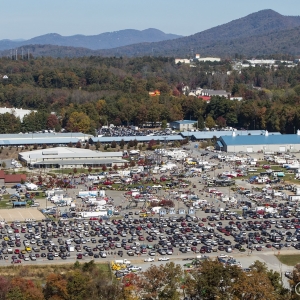The Stream, October 30, 2019: 300M People at Risk of Yearly Coastal Flooding by 2050, New Data Shows
The Global Rundown
New research claims 300 million people worldwide are at risk from rising sea levels, a higher number than previously suggested. A landslide in Cameroon following heavy rainfall leaves at least 37 people dead. A petrochemical plant in Iran is delayed by water shortages. Experts say the world is “woefully unprepared” to address the effect of climate change on mountain water supplies. The opening of a new dam in Laos on the Lower Mekong River is met with protests.
“I think the future of the river is dire. This is just the beginning. With more dams, the once powerful Mekong river will become just a small creek.” –Sangtong Siengtid, a village chief and fisherman in Laos, in reference to the newly-opened Xayaburi Dam along the Lower Mekong River. The hydropower dam opened on Tuesday in the midst of protests by locals, who fear the dam will sap downstream water resources and devastate livelihoods. Reuters
In context: One By One Big Hydropower Dams Disrupt Mekong River’s Free Flow.
Latest WaterNews from Circle of Blue
Election 2019: State and Local Voters Face Water Infrastructure Funding Decisions — Ballot initiatives in Colorado, Texas, New Orleans, and Portland address flooding, financing, and watershed protection.
HotSpots H2O: Fuel Shortages Slash Water Supply for 15 Million in Yemen — A fuel crisis in Yemen is severely straining water supplies for 15 million people, according to reports from Oxfam and other aid agencies.
By The Numbers
300 million People at risk of annual coastal flooding by 2050, according to a new study published in the journal Nature Communications. The number, which was determined using artificial intelligence to compensate for errors in satellite data, far surpasses the previous estimate of 80 million. The majority of at-risk people live in Asia, with 100 million people at risk in China alone. The Guardian
In context: Capital Flight? Indonesia Leader Suggests Moving Government Out of Sinking Jakarta.
10 percent Proportion of a petrochemical plant near Firouzabad, Iran, is completed. The project began a decade ago, but has been halted due to a regional shortage of water, which is needed to cool the plant. At least a dozen similar projects in Iran have been hampered by water shortages as well. Reuters
Science, Studies, and Reports
Experts warn that the planet is “woefully unprepared” to address the impact of climate change on mountain water supplies. Mountain sources, which account for nearly half the world’s drinking water, are becoming increasingly unpredictable amid warmer temperatures. Scientists say that a great deal of infrastructure will have to be redesigned to adapt to the changing supply. Reuters
In context: Mountain Regions, ‘Taking the Heat,’ Face Growing Hazards As Ice Melts, UN Climate Panel Warns.
On the Radar
Heavy rainfall spurred a deadly landslide in Cameroon on Monday, with a death toll of at least 37 as of Tuesday evening. Rescue workers are continuing to search for survivors among the devastated remains of hillside homes. BBC
Kayla Ritter is a recent graduate of Michigan State University, where she studied International Relations and Teaching English to Speakers of Other Languages. She is currently based in Manton, Michigan. Kayla enjoys running, writing, and traveling. Contact Kayla Ritter







Leave a Reply
Want to join the discussion?Feel free to contribute!